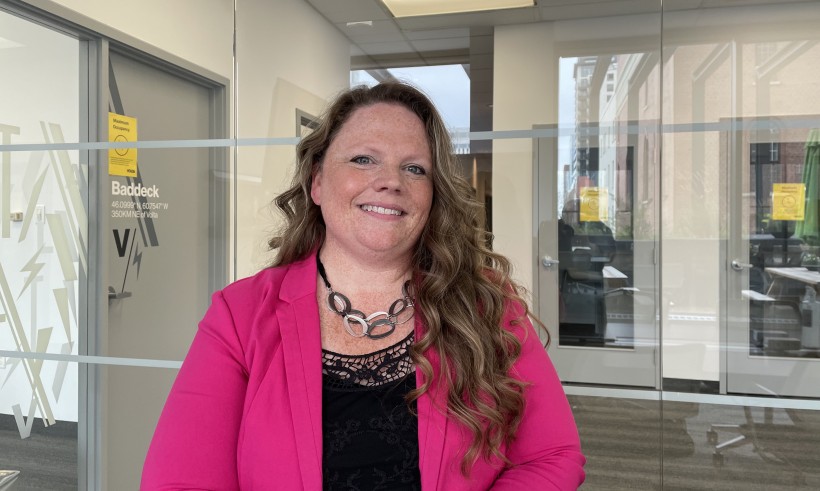Halifax fintech startup CacheFlo has inked a distribution agreement with the Halifax Chamber of Commerce in a move CEO Stephanie Holmes-Winton expects to pave the way for similar deals with other chambers.
In an interview, Holmes-Winton said chamber members will be able to subscribe to CacheFlo’s app, Winton, for their employees to use. The deal marks the second time CacheFlo has allied itself with a large organization, with the first being an April agreement with the union that represents New Brunswick Power employees.
Winton helps users develop good financial habits via short, five- to 15-minute lessons. The software grew out of CacheFlo’s previous focus on developing e-learning training material for financial advisors and their clients.
“There's a ton of studies out there that have shown that financial literacy efforts haven't been very effective,” said Holmes-Winton. “And if you read them carefully, what it shows is financial literacy efforts are typically teaching facts about money.
“And it's not very sticky. It’s really hard to take a fact and necessarily know how to apply it to yourself. So that's what we've been trying to do is bridge that knowing-doing gap. So today, an employer can use our app and e-learning as a digital financial wellness program.”
Founded eight years ago, CacheFlo is the result of Holmes-Winton’s experiences as a financial advisor.
She originally dubbed the company The Money Finder -- a nickname her clients gave her for her ability to find ways to free up their own cash flow, such as by consolidating debt. And an earlier version of the software focused on producing similar results via an automated process.
The first versions of what was then The Money Finder were marketed to Holmes-Winton’s fellow financial advisors, who offered it to their clients as a value-add.
The company also developed an e-learning course for its advisor clients.
By 2018, though, the Money Finder name was proving problematic. It triggered email spam filters and its generic nature made intellectual property protection difficult.
Holmes-Winton renamed The Money Finder as CacheFlo, and inspired by her increasing focus on the e-learning elements of the business, she decided to start creating content for end-users.
Last year, in a bid to scale faster, she changed CacheFlo’s business model to focus on large organizations, like the Halifax Chamber of Commerce, which she hopes will help her get her foot in the door with other chambers.
“So what we're looking at is organizations that chambers have in common,” she said. “They have different services they tend to sponsor across the country. So, we're looking at their existing partners, looking for opportunities to connect.
“The other thing that's happened is our customers who are independent advisors are business owners in their region, they are almost always members of the [local] chamber of commerce. So, some of our own customers have come to us and said, this is awesome, can I introduce you to the head of the chamber of commerce in this city or that city.”
Last year was profitable for CacheFlo -- thanks to several large, but non-recurring service contracts -- and Holmes-Winton said she hopes to leverage this year’s two big deals to turn a second consecutive profit in 2021. Buttressing that effort will be the several hundred financial advisors who still offer the Winton app to their clients.
Holmes-Winton also foresees making a handful of new hires later this year, expanding her five-person team.
A funding raise, though, is not on the horizon.
Holmes-Winton bootstrapped the company by making sales deals before the software had actually been built, and then raised $1.75 million in a 2017 round led by Halifax’s Build Ventures to pay software developers. But the time-consuming process made her leery of future raises.
“I know from past experience that if I have to focus on raising capital, the sales will be impacted,” she said. “And I think unless and until we get to the point where I would feel confident that wouldn't happen... we won't be doing that right now.”










